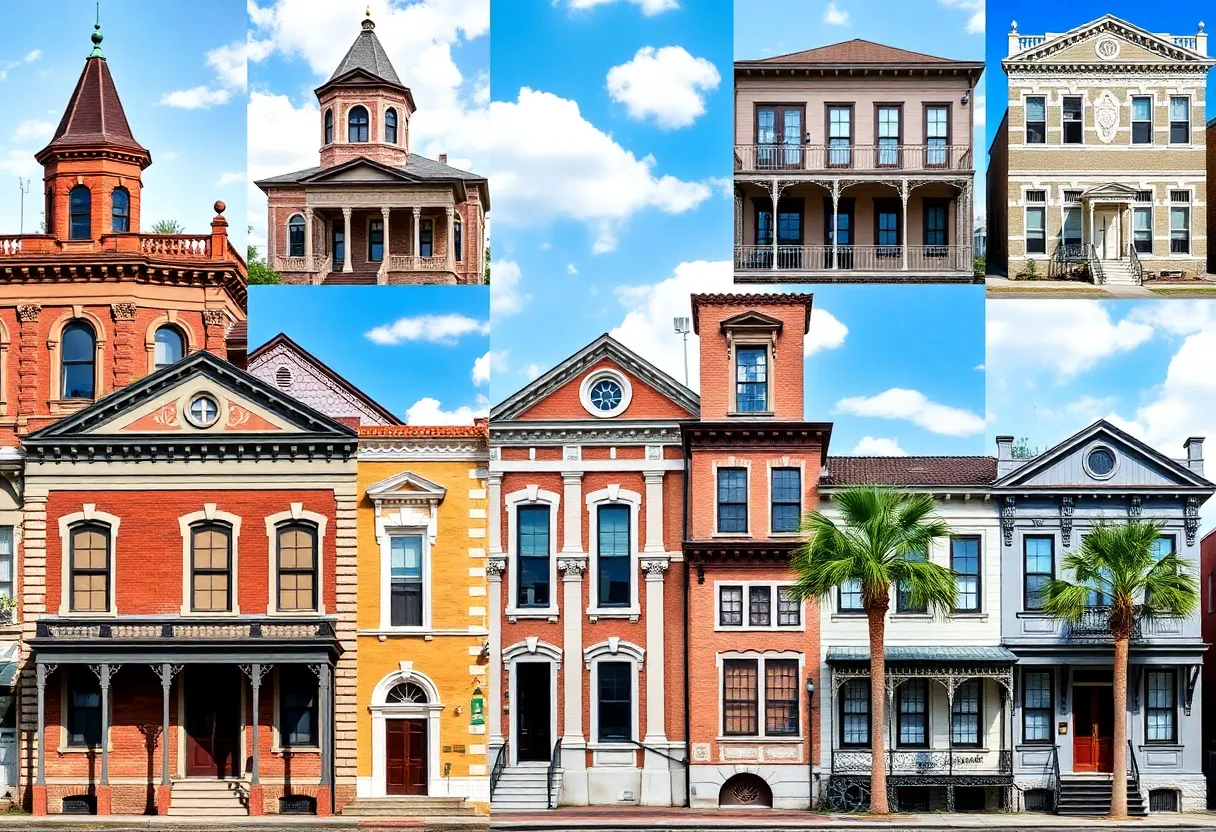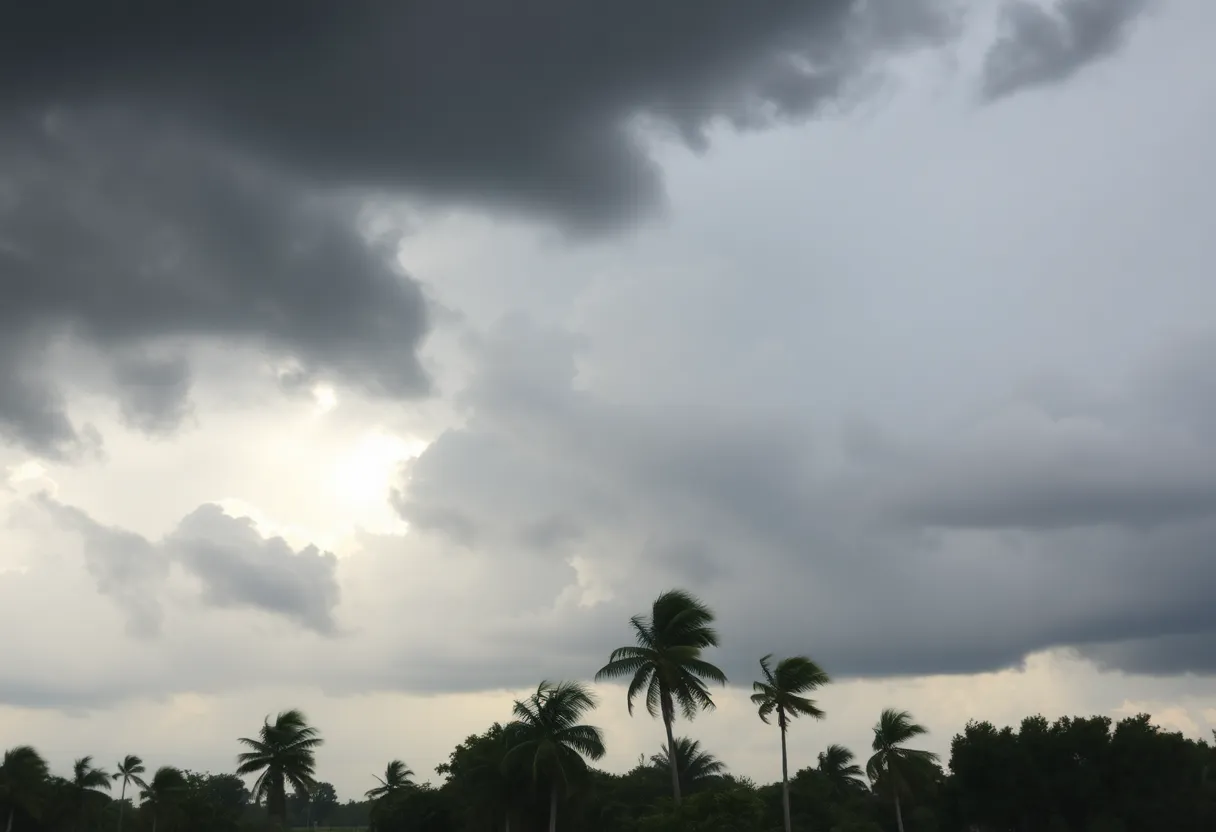News Summary
The Jacksonville History Center has identified several historic properties in the city at risk of deterioration. Key sites include the Snyder Memorial Methodist Church and the Laura Street Trio, emphasizing the urgent need for preservation efforts to safeguard Jacksonville’s rich historical heritage.
Jacksonville – The Jacksonville History Center has released a sobering report identifying historic properties in the city that are at risk of deterioration and potential loss. This year’s report was unveiled on May 14, 2025, during a presentation held in the recently renovated Florida Casket Company building located at 314 Palmetto St. The report serves as a wakeup call for the community, highlighting the urgent need for preservation efforts to protect these vital links to Jacksonville’s past.
Among the properties facing significant threats is the Snyder Memorial Methodist Church, originally known as Trinity Methodist Episcopal Church. Built between 1902 and 1903, this church is not only architecturally significant but also holds historical importance as a refuge for Black demonstrators during the civil rights movement, particularly during the Ax Handle Saturday events. Currently owned by the City of Jacksonville, the church has remained vacant for much of the past decade, raising concerns about its future.
The report also emphasizes the precarious status of the Laura Street Trio, which consists of three historic buildings located on Forsyth and Laura streets. These structures include:
- Florida Life Building: An 11-story building completed between 1911 and 1912, designed by noted architect Henry J. Klutho.
- Bisbee Building: Constructed between 1908 and 1909, also by Klutho, showcasing the Prairie style.
- Old Florida National Bank (Marble Bank): Built in 1902, this building was designed in the Classical Revival style by architect Edwin H. Glidden.
The City of Jacksonville acquired the Laura Street Trio in 2002, and renovation efforts commenced in 2011 to convert the buildings into a Courtyard Marriott Hotel. However, recent developments have put these plans in jeopardy. In April 2025, the city filed a default motion against Laura Trio LLC, seeking a public auction due to over $800,000 in unpaid fines.
Other notable properties identified as endangered include the Annie Lytle Public School, constructed in 1917 by architect Rutledge Holmes. This school has been vacant since the 1970s and faces potential demolition despite its historical designation. Additionally, Mount Olive A.M.E. Church, which has roots dating back to 1887, is another property of concern, particularly because it was designed by Richard L. Brown, Jacksonville’s first Black architect, and is recognized for its historical significance.
The report also mentions the Charles E. Bennett Federal Building, a one-story structure completed in 1966, which is currently being considered for sale as a non-core property. The Ambassador Hotel, completed in 1923 and initially serving as Jacksonville’s first major downtown apartment building, is in the midst of a renovation to be converted into a LaQuinta Inn & Suites.
Further, the Florida Baptist Convention Building, constructed between 1924 and 1925, stands out as the first state Baptist organization building in the nation and has recently been restored into a mixed-use space. The JAX Brewing Company, established in 1913, is also highlighted for its integral role in Jacksonville’s early expansion prior to the repeal of Prohibition. The Federal Reserve Building, designed by Henrietta Dozier, Jacksonville’s first female architect, is set to be redeveloped after enduring over 40 years of abandonment.
The Fire Station Museum, originally established in 1886, is distinguished for being staffed entirely by African American firefighters, holding significant historical importance within the community.
In addition to these buildings, the report lists endangered schools facing closures, including Atlantic Beach Elementary, Fishweir Elementary, and Ortega Elementary. These endangered properties underscore Jacksonville’s rich architectural and cultural heritage, emphasizing the critical need for ongoing preservation initiatives.
The Jacksonville History Center aims to inform and educate residents about the importance of historic buildings in shaping the city’s identity. This report serves as a reminder of the collective responsibility to preserve Jacksonville’s history for future generations.
Deeper Dive: News & Info About This Topic
HERE Resources
Jacksonville City Council Delays Landlord Registry Proposal
Northeast Florida’s Luxury Real Estate Market Thrives
Transformative Phase in South Florida Architecture Driven by AI
C&S Wholesale Grocers to Close Baldwin Distribution Center
Historic Homes and Gardens Await Visitors in Jacksonville
Jacksonville Council Proposes Landlord Registry to Address Housing Concerns
Jacksonville Council Pauses Purchase of Interline Building for UF Campus
Changes Coming to Davie: Signature Grand to Make Way for New Logistics Park
Jacksonville Unveils Customized Monopoly Game
Jacksonville Streets Set for Two-Way Traffic Changes
Additional Resources
- News4JAX: Jacksonville History Center Releases Annual List of Endangered Historic Buildings
- Wikipedia: Jacksonville, Florida
- Jacksonville Daily Record: Annual List of Endangered Buildings
- Google Search: Jacksonville historic preservation
- The Jaxson Mag: Time for the Laura Street Trio’s Owner to Bow Out
- Encyclopedia Britannica: Historic Preservation
- First Coast News: Annual List of Endangered Historic Buildings
- Google News: Jacksonville buildings historic preservation
Author: STAFF HERE JACKSONVILLE WRITER
The JACKSONVILLE STAFF WRITER represents the experienced team at HEREJacksonville.com, your go-to source for actionable local news and information in Jacksonville, Duval County, and beyond. Specializing in "news you can use," we cover essential topics like product reviews for personal and business needs, local business directories, politics, real estate trends, neighborhood insights, and state news affecting the area—with deep expertise drawn from years of dedicated reporting and strong community input, including local press releases and business updates. We deliver top reporting on high-value events such as the Jacksonville Jazz Festival, Riverside Arts Market, and World of Nations Celebration. Our coverage extends to key organizations like the Jacksonville Chamber of Commerce and JAXUSA Partnership, plus leading businesses in logistics, healthcare, and entertainment that power the local economy such as CSX Corporation, Baptist Health, and VyStar Credit Union. As part of the broader HERE network, including HEREOrlando.com, HEREStPetersburg.com, HERETallahassee.com, and HERETampa.com, we provide comprehensive, credible insights into Florida's dynamic landscape.






